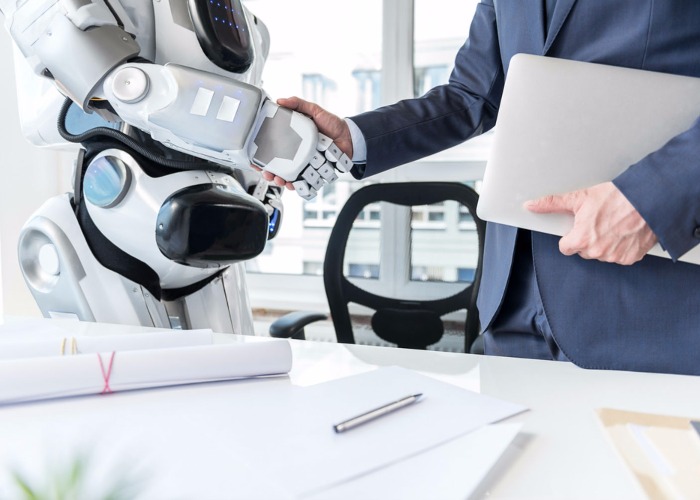A third of our jobs will be taken by robots and other machines by 2030, according to experts.
So it may sound far-fetched, but if we’re losing work to the robot culture, should our metal friends be taxed instead?
It’s not just manufacturing where this can happen. Around the world, everyone from customer service reps to guides in museums and supermarkets are being affected. Transport Systems Catapult, the company behind the ‘driverless’ pods in Milton Keynes, have taken on Betty, the UK’s first robotic office manager.
The subject is giving the world’s governments a financial headache with concerns over how to fund the welfare system if robots rather than humans are employed.
‘Robot tax’
South Korea could pave the way with the world’s first robot tax. The thinking is that if machines gradually replace humans, it may mean mass unemployment and to this end the country is proposing to limit tax breaks on investment in automated machines in the workplace.
This in turn could help governments fill the welfare coffers if they’re going to be supporting an unemployed workforce in years to come.
Microsoft co-founder Bill Gates is an advocate of a robot tax and has suggested that cash generated in this way could pay for more workers in industries where technology can’t always do the job, like healthcare.
Closer to home, Labour leader Jeremy Corbyn raised the issue of the challenges faced by an increasingly automated workforce in his speech at the Labour Party Conference.
And when it comes to the nuts and bolts of the issue, machines and artificial intelligence are expected to take a third of British jobs in the next 13 years according to research from the consultancy firm PwC.
The knock-on effect of any job losses will drip feed through to the economy according to George Bull, a senior tax partner at RSM UK.
“Job losses will be followed by a decline in Income Tax, social security contributions and other payroll taxes and Exchequers will see healthy tax flows replaced by increased obligations to pay social benefits”.
When it comes to the existing workforce, those hardest hit will be workers with GCSE-level education or lower according to PwC which says, “the estimated potential risk of automation is as high as 46% in the UK, but this falls to around 12% for those with undergraduate degrees or higher”.
Keep your loved ones protected with a life insurance policy
Could a robot tax work?
Clearly you can’t tax a machine, no matter how sophisticated the robot culture becomes. George Bull says they’re simply “tools by which businesses operate”.
They exist to “boost productivity and profitability, [so] taxing them as if they were real people simply doesn’t make sense”.
However, Bull says that the heart of the problem is that, “in most G20 nations, the rate of tax businesses pay on profits, (Corporation Tax in the UK), is less than the rate of Income Tax, social security contributions and payroll taxes paid by the human workforce”.
If a robot tax is considered, Bull says there’s only a limited number of options available, all of which require careful consultation and planning.
These include “increasing the rate of Corporation Tax to compensate for the decline in labour taxes, reducing the tax incentives available for research and development, or broadening the tax base in other ways, for example through the implementation of a land value tax, through higher business rates for companies using robotics or automated intelligence”.
Whether you want to consider it a robot tax or not, some companies like Vauxhall are already paying a higher price for bringing new machinery into the workplace, through a rise in their business rates.
“If we invest in certain types of plant or machinery, it increases the rateable value of our business and means we pay higher business rates which can be a disincentive to invest”, says Vauxhall’s head of government regulation, Helen Foord.
Is a robot tax fair?
Some smaller companies may see robot culture as way of cutting long term staff costs and boosting productivity but if any savings on the workforce front are being outstripped by extra taxes, business owners could be left wondering if it’s worth investing in new technology.
Dominic Keen runs the British Robotics Seed Fund and Britbots Crowd, a company that helps to fund robotics start-ups:
“A robot tax would just add even greater pressure on companies in industries that are struggling to survive,” he says.
“The British economy needs to be more productive to compete globally and a robot tax would be a negative step in this regard”.
Keep your loved ones protected with a life insurance policy
